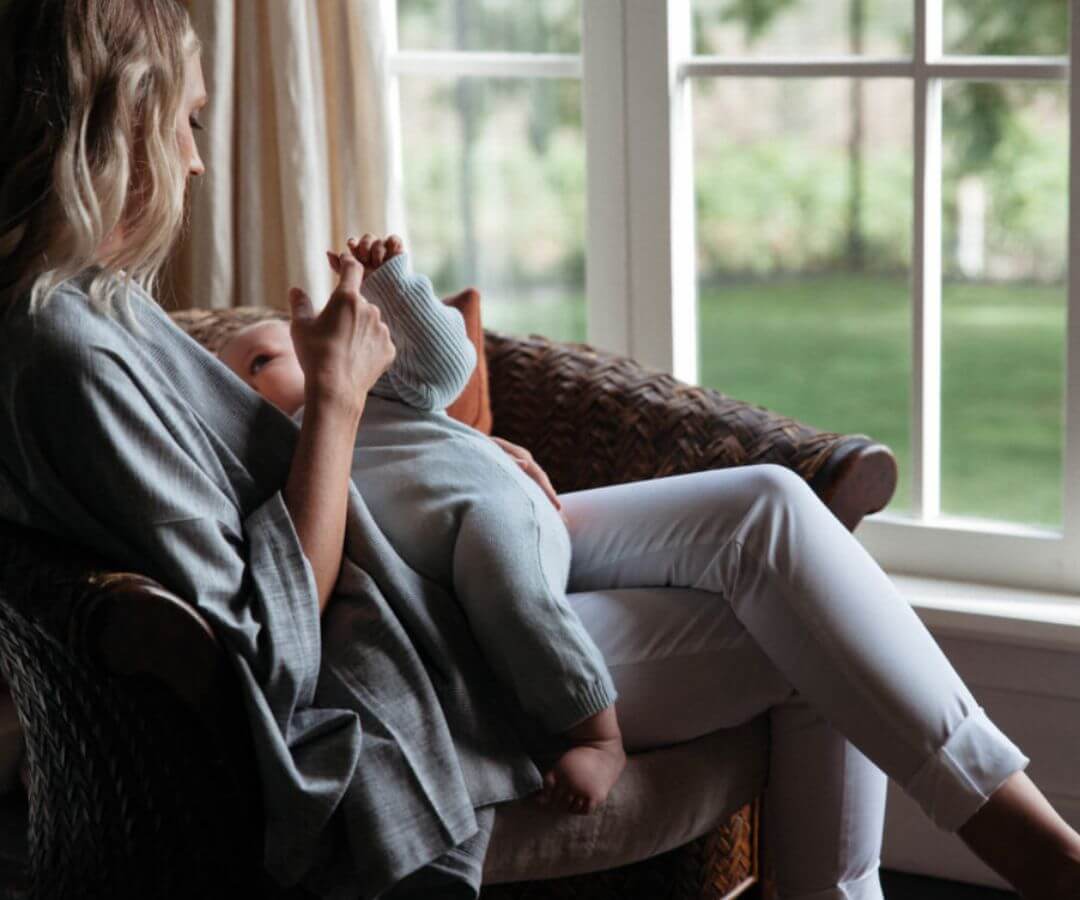FREE GIFT FRIDAY IS HERE... Receive a FREE Nipple Butter with every purchase $50 and over, plus every order enters you in to win a $2,000 getaway.*
The AI parenting revolution has arrived...

From helper to co-pilot: How AI is redefining modern motherhood.
Motherhood in 2025 looks a little different, and no, we’re not talking about flying strollers (yet). The latest game-changer? AI is stepping out of the tech shadows and into the nursery, the kitchen, and even the carpool lane. But before you picture a robot nanny, let’s explore how this shift is actually making parenting more human, not less.
Why AI is booming in parenting.
The short answer: mothers are overwhelmed. The invisible load, the constant decision fatigue, the relentless Googling at 2am, it adds up. AI isn’t just automating tasks, it’s personalising support in a way that feels intuitive, responsive, and shockingly, empathetic.
Picture this:
- Need dinner ideas based on what’s in your fridge and your toddler’s allergy profile? AI’s got you.
- Trying to soothe a teething baby at 3 a.m.? Your digital assistant offers evidence-based remedies from paediatric experts.
- Planning postpartum recovery? AI platforms can now recommend physio exercises, local specialists, and routines tailored to c-section vs. vaginal birth.

But doesn’t this replace parental instinct?
Not at all. In fact, the smartest use of AI is not to override your gut, but to inform and support it. Think of it as a hyper-intelligent co-pilot. You still drive. But now the map updates in real-time, warns you of bumps ahead, and even offers a few scenic detours when you need a moment of joy.
Parenting styles, cultural nuance, and the rise of adaptive tech.
The real evolution in 2025 is that AI isn’t one-size-fits-all. Tools are learning to adapt to different parenting philosophies, cultural practices, and family dynamics. Gentle parenting? Attachment style? Co-sleeping? AI systems are starting to understand the nuance and curate advice accordingly, rather than handing out generic rules.
What this means for new and expectant mamas.
Whether you’re in the throes of your third trimester or navigating your first night home from the hospital, this tech evolution is making support more accessible than ever. Imagine having a birth doula, lactation consultant, and sleep coach, all at your fingertips (and all trained in the same tone of compassion you expect from your closest friends).
And while nothing replaces the power of community and lived experience, the tools arriving this year are helping lighten the mental load and giving mothers the one thing they’ve been craving for centuries: better support, exactly when they need it.

Want to know which AI tools are actually worth exploring? Here is our list of tried and tested apps to help you through the next generation of smart parenting.
1. Juno – Your AI parenting assistant.
A chat-based assistant trained on paediatric guidelines, parenting advice, and maternal mental health resources. Ask anything—“Is this rash normal?” “What’s a good routine for a 6-month-old?”—and get clear, evidence-backed responses.
Think: ChatGPT meets your mum group with a medical filter.
2. Winnie – Smart localised childcare + community finder.
AI-powered search for nearby childcare, activities, and parenting events tailored to your preferences and your child’s age. Includes reviews and filters by schedule, values, and more.
Perfect for overwhelmed parents trying to build their village.
3. Lysa – Mental load organizer.
An AI app that turns your mental checklist into shared, trackable tasks. Helps partners balance invisible duties like packing daycare bags, scheduling appointments, or remembering milestones.
Brilliant for co-parenting transparency and mental load relief.
4. Glow/Nurx – Cycle + fertility + postpartum tracking.
Glow’s AI learns from your unique hormonal and mood patterns to offer insights into fertility, postpartum cycles, or contraception changes.
Especially useful for postpartum hormonal shifts or TTC again.
5. Qyou – Smart sleep coach.
An AI-powered sleep assistant for babies and toddlers. Offers dynamic routines, sleep environment adjustments, and schedule tweaks based on real-time sleep data or parent feedback.
No more guessing why they’re waking at 2 a.m.
6. Mindsera – Mental health journaling with AI reflection.
Designed for emotional check-ins, this tool lets you voice-note or type thoughts. AI offers insights and helps you reflect or reframe negative self-talk—great for postpartum identity shifts.
Think therapy-lite meets a judgment-free zone.
7. Nara Baby – All-in-one baby tracker with AI pattern detection.
Tracks feeds, sleep, nappies, and moods—then uses AI to spot trends or red flags (e.g., signs of reflux or skipped developmental leaps).
A lifesaver in the fog of early days.
8. Kinedu – AI-based developmental play ideas.
Offers activity suggestions based on your baby’s age and milestones, using early childhood education frameworks. Learns what your child likes and adapts.
Great for stimulation without the Pinterest stress.
9. Aavia – Hormone-syncing support.
Uses AI to track, predict, and explain how your hormones may be impacting your energy, mood, and focus postpartum. Offers daily tips and routines to align with your rhythm.
Super helpful for navigating the hormonal waves of new motherhood.
10. Luvo – AI meal & nutrition planner for pregnancy + breastfeeding.
Creates simple, balanced meals based on your nutritional needs, trimester, allergies, and even cravings. Can generate grocery lists and help with postpartum recovery too.
Think: pregnancy-safe, nutrient-rich meals without overthinking.